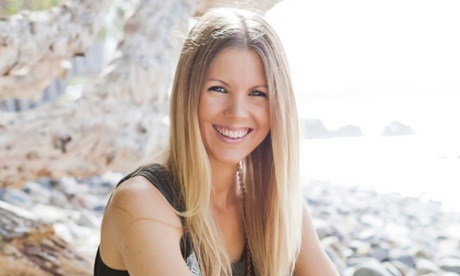
The former online editor of the teen publication Dolly, who attracted thousands of followers on social media after she shunned conventional medical treatment for a rare cancer, has died aged 30.
Jessica Ainscough was diagnosed with epithelioid sarcoma seven years ago, a rare soft-tissue cancer which affects young adults and most often first develops in the hand or arm.
Doctors suggested Ainscough’s best chance of survival would be to have her arm amputated at the shoulder, a traumatic procedure that significantly increases a patient’s chance of 10-year survival.
She tried chemotherapy for a time, but when it stopped working, amputation was again recommended.
It was then Ainscough tried to cure her cancer by following an unproven treatment known as “Gerson therapy”, which involves daily coffee enemas, a heavy regime of dietary supplements, and following a strict organic, vegetarian diet.
Cancer institutes around the world have rejected Gerson therapy as unproven, with the website of the National Cancer Institute in the US stating: “The data that are available are not sufficient to warrant claims that the Gerson therapy is effective as an adjuvant to other cancer therapies or as a cure.”
Ainscough became known as a “wellness warrior” after she left her job and began documenting her experiences with Gerson therapy online, attracting a strong following which included other cancer patients.
Her mother, Sharyn, followed her daughter in advocating Gerson therapy after being diagnosed with breast cancer, and died in 2013.
In an update Ainscough posted to her website last year, she said she had become unwell, attributing this to her mother’s death.
“For the first time in my almost seven year journey with cancer, this year I’ve been really unwell,” Ainscough wrote.
“I’ve lived with cancer since 2008 and for most of those years my condition was totally stable. When my mum became really ill, my cancer started to become aggressive again. After she died, things really started flaring up.
“For the past few months, I’ve been pretty much bedridden.”
A profile piece on Ainscough published by Fairfax last year, which said her alternative treatments had “paid off”, attracted criticism for not including any comment from peak cancer bodies or medical experts.
“It started out as a personal journal online and attracted a worldwide family craving this information,” Ainscough told Fairfax of her online blog.
Fairfax later updated the story to include comment from Cancer Australia, who state on their website that some patients used complementary and alternative therapies to “gain a feeling of control over the treatment of their disease”.
“Most alternative therapies have not been assessed for efficacy or safety,” Cancer Australia state.
“Some have been studied and found to be harmful or ineffective.”
The Clinical Oncology Society of Australia recently updated their position statement on complementary and alternative (CAM) cancer therapies, emphasising the importance of patients discussing such treatments with their doctors, as they could interfere with conventional medical therapy.
“It is likely that more than two-thirds of Australian adults have used CAM in the last 12 months,” the statement said.
“Less than half of them will have informed their doctors of their CAM use and many may be using CAM as well as prescription medicine.
“Patients are also at increased risk of harm if they delay or stop using proven conventional medicine in favor of a CAM that has no evidence of efficacy.”
